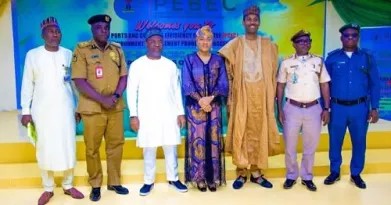AN estimated 38,250 jobs in the agriculture sector are to be created through the $129.17 million Livelihood Improvement Family Enterprises Programme in the Niger Delta (LIFE-ND) initiated by the Niger Delta Development Commission (NDDC) in partnership with the International Fund for Agricultural Development (IFAD).
NDDC’s Acting Managing Director, Dr Akwagaga Lelegima Enyia, said the scheme would transform the rural economy of the oil-rich region and the livelihoods of its citizens.
Represented by the Director, Special Duties, Nosa Agbongiasede, she explained that the programme had a financing gap of six years from the interventionist agency to the tune of $30 million and another term to be financed subsequently by partners in addition to an IFAD loan.
The NDDC chief executive stated that the cost to be incurred during the 12-year implementation period was 129.17million.
“The project directly supports the Federal Government’s agricultural policy and the strategic framework for youth employment and job creation. The strategic framework addresses the large and growing number of restless unemployed youths, especially in rural areas. It seeks inclusion of young people in profitable agribusiness,” she clarified.
Enyia said the LIFE-ND would be implemented in the nine oil-producing states, beginning with 10 local councils in 10 communities per council area.
The IFAD, she pointed out, had a global mandate of eradicating poverty through agricultural interventions in rural communities.
According to her, the partnership is to improve the living standards of the rural populace and reduce rural-urban migration and criminal activities.
The NDDC boss reiterated the commitment of the commission to continued partnerships with international development organisations for the benefit of the oil-producing states.
The agency’s Director of Agriculture and Fisheries, George Ero, said his organisation’s target was to diversify the resource base of the country and reduce its dependence on oil and gas.
The IFAD Country Representative, Nadine Gbossa, noted that the project would provide more opportunities for the youths and women in the Niger Delta.
She stated that her establishment was keen on the success of the programme.
The National Project Coordinator, Abiodun Sanni, submitted that the scheme would enhance income, food security and job creation among rural youths and women.
 The New Experience Newspapers Online News Indepth, Analysis and More
The New Experience Newspapers Online News Indepth, Analysis and More
